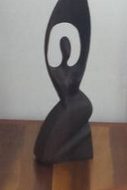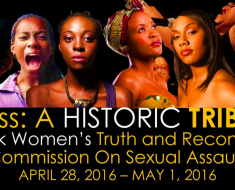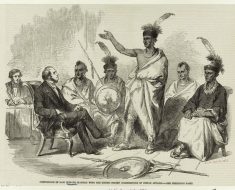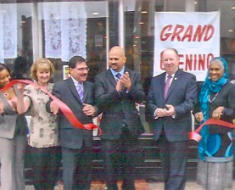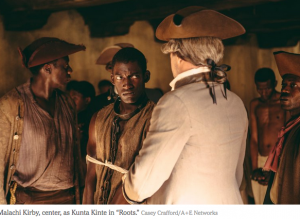
An ASK Story (References and links will be added to this article.)
We are in a time of healing the spirit-mind-body because we know the USA is only as great as we are. It is time to live up to and live IN to who we say we are, which might be GREAT. (Yeah, I know…)
Says who? Do we even own that greatness? Let’s say we do. How do we live IN to it? One way may be by assessing our experiences in light of the slave/master syndrome, without fear, blame or excuses. If not, we might face an affliction of spirit, chink in the armor, tic in the body-mind that may haunt us and generations after us, if we are not careful.
According to Wikipedia,

A tic is a sudden, repetitive, nonrhythmic motor movement or vocalization involving discrete muscle groups. Tics can be invisible to the observer, such as abdominal tensing or toe crunching. Common motor and phonic tics are, respectively, eye blinking and throat clearing.
I know my life is marked by tics, especially of the stomach-tensing kind. This comes to mind because of a reconnection with a college friend on the West Coast (I’m on the East Coast). Her experience reminded me that the tic of real healing among “AMER-ICONS” is a signal we have to acknowledge what feels uncomfortable, and deal with it.
Just from listening to her share what happened, I could feel my body tensing and head aching. Last week, just after the election, she attended a birthday party in Malibu. An operatic tenor of African descent sang the following three songs, with fervor and traditional gusto. The first was on his list. The second and third songs were requests from attendees:
- Danny Boy
- Ole Man River
- Amazing Grace
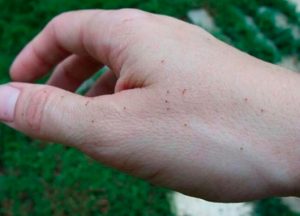
My friend felt the twinge of embarrassment on hearing these songs– “I felt like I was on the plantation!” she recounted.
It really didn’t matter that the birthday boy and his wife represented a very moneyed black/white couple. For her it was unnerving because the lyrics are so passé. Knowing her, I’m sure others knew she was peeved.
Even if the great Paul Robeson sang Ole Man River (of course it would be promoted), he is also absolutely known as a self-professed communist who took no tea for the fever. He caught hell for it too.
My sister-friend tried to catch her companion’s attention. His refusal to look her way could be said to mean nothing, just being polite in public. But she felt a tic in her body-mind; a here-we-go again trigger that something was not right. It grew progressively worse with each deepening bass note, each baritone reference to being a wretch** and picking cotton.
Her experience is an example that reflects and represents the slave/master syndrome (instead of post-traumatic slave syndrome). The black/white audience’s approval and encouragement was a “sudden, repetitive, nonrhythmic motor movement or vocalization” that they couldn’t control or deny.
For her, the entire event was a Stepford Wives scenario that disrespected who she was and who her people really are. It could have been an opportunity to discuss what’s at stake in the socio-political realm. But the man was turning 70, so that didn’t happen.
What’s at stake is the mental, emotional and spiritual health of black people who must endure the reminder of picking cotton for the elevation of the nation with little appreciation for the breadth of their efforts, ALL THE TIME.
The African American Museum at the Smithsonian is one way, albeit passive, to rectify the lack of regard and respect. The museum acknowledges the contributions and places the humanity of people darker than blue to the elevated state which they deserve.
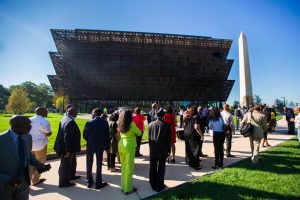
Anyone should be proud and impressed that black people built the foundation of this nation, and not just by picking cotton and tobacco.
- Google “Black Inventors and Inventions” if you must.
- Look up “Black or slave inventions and contributions attributed to White Masters and others.”
- Study the resuscitation of Broadway, Hollywood, the music industry, the fashion industry and the art world during the 1960s-1990s. Note which Americans revived these industries.
- Note the current patents held by blacks and the myriad professional associations to which they belong.
It is time to live up to, and live IN to, the greatness. I mean, sometimes, we do party together, even if, at other times, we could use a different playlist….
Questions:
- Why do Euramericans deny or negate the African contribution to the US?
- What feels so harmful about the truth of it?
- Who are the individuals or groups of Euramericans discussing this and taking steps to rectify it?
- When is misunderstood Darwinism, which equates blacks with animals, going to be addressed?
- Who has taken on educating the media?
I ask YOU.
*princely dolls or princess-like action figures
**The “Negro spiritual” Amazing Grace (1779) is beloved by African Americans even though its author John Newton was an English overseer aboard a slaveship, who survived a storm and was transformed by the experience, prompting his conversion to Christ and appreciation through writing the hymn. Some have suggested that the lyrics may also represent his lament for the treatment of black people.

